This is a small acrylic painting done following a recent Will Kemp tutorial video course. There's a larger main painting to come (which I've "completed") and I'll post that separately. This study is quick and rough but still presentable I think, even if not originally designed to be a fully finished "proper" painting.
Below: San Giorgio Maggiore, acrylic on board, 6x8"

There is a very textured surface. This is an acrylic coarse modelling paste mixed in with the ground colour used, and adds the rough texture you can see. This can make for a more interesting painting experience sometimes.
On my way to the RA last week, I did some art gallery window shopping in New Bond Street and saw a notice in the window of the Richard Green Gallery about an S.J. Peploe exhibition coming up. Peploe's a well known Scottish Colourist painter of the early 20th Century; an artist and a group of artists I like. The Glasgow and Edinburgh Galleries have a few but you do not get many opportunities to see more unless you do much more travelling.
A good small exhibition of some lovely paintings, particularly the still lives. If you're in the area pop in. You can also see the catalogue online.

Right:
Still Life of Pink and Red Roses in a Chinese Vase
Oil on canvas, 25x25", 1918-1922
Some were from a private collection, some for sale. The price for a larger canvas like this
was getting close to a million (pounds sterling).

Right:
Apples and Pears
Oil on canvas, 18x21.5", 1918
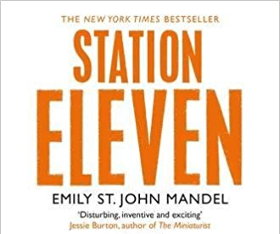
Station Eleven
By Emily St. John Mandel
Score: 4/5
Existence is very fragile, as is civilisation, and few think about the perils of living without running water or electricity. They are exactly the sort of thing you need to do if you're writing a book like this though. If a virulent flu virus was ever to sweep the world again, as one did in 1918, civilisation might come to crashing halt.

Emily St. John Mandel's novel tells the story of some people caught up in such a calamity, as things fall apart after a new flu epidemic kills most of the planet's inhabitants. There is enough realism here to make you face the likely effects, a horror or what it means as everything stops working and people die, but she doesn't dwell on the horror and this is not a horror story. Switching between a select few characters whose lives intersect in some way pre and post-fall, the story never becomes morbid or hopeless. Kirsten, one of the main characters, acts in a travelling theatre and orchestra, staging Shakespeare to scattered survivors living in various settlements in the American and Canadian heartland. There is no one main character but enough characterisation is done to create believable people.
When I got to the end of the book, there was some sort of "study guide": questions a teacher might ask students to think or write about. Although the book does not seem to have a "young adult" label anywhere I could see, it had that feel about it. I think I started to consider this about half way through; perhaps the lack of swearing. This was nothing I missed.
A good novel and one I enjoyed.
The RA has another "Academician in Focus", Fred Cuming. I'd never heard of him, but this means nothing: there are so many great but unknown and to-be-discovered artists in the world, dead and alive. I really like his work and made sure I had a good look before my visit to the gallery today. He's over 80 now and still going strong.
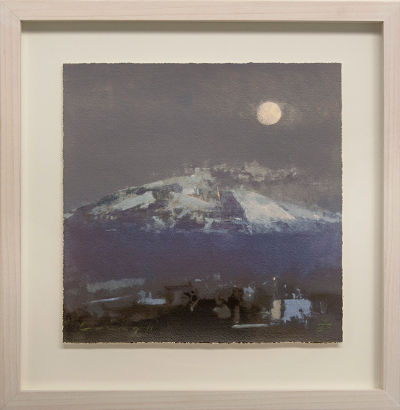
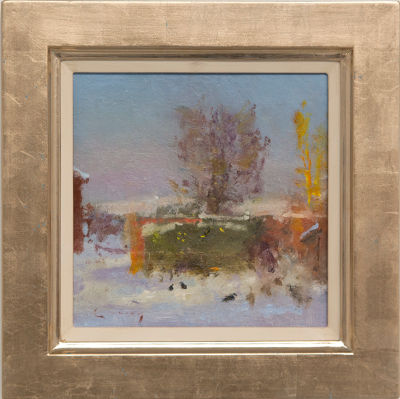
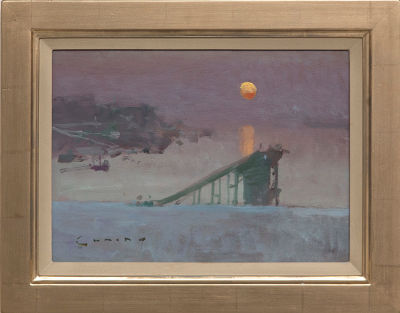
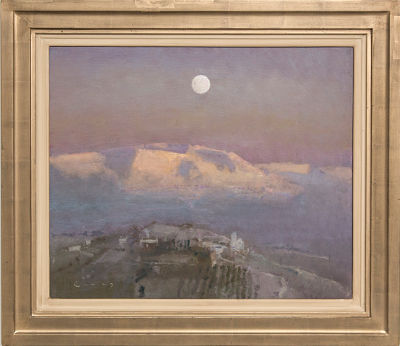
To see larger versions, and more, visit the RA site.
A few years ago, I wrote about a system of learning called Spaced Repetition and with particular reference to an application called Anki.
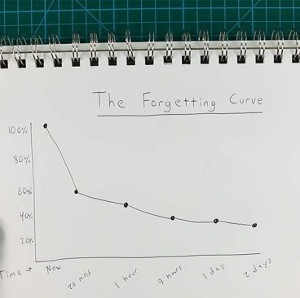
A useful blog post went over similar territory recently and it's worth a read. It explains the reason why this learning method is so good, including mention of the actual research behind it. We all know that to hold a piece of knowledge in your head requires you to "imprint" it; then occasionally reinforce the memory. But how often and when should this be reinforced, for the best results? This is where the research comes in handy, distilled into an app :
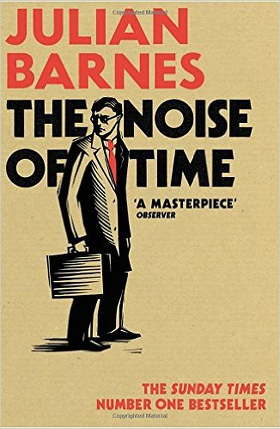
Noise of Time
By Julian Barnes
Score: 5/5
When you chop wood, the chips fly: that's what the builders of socialism liked to say. Yet what if you found, when you laid down your axe, you had reduced the whole timberyard to nothing but chips?
I thoroughly enjoyed this novel, the first Julian Barnes I've read. It tells the story of Dmitri Shostakovich, the famous Russian composer, in his own words, as he lives and tries to survive the calamitous 20th Century. Born before the Bolshevik Revolution, he lived his entire working life in Soviet Russia, much of it under Stalin, with all that meant.
The book is very funny in parts, but also sad and poignant. There are some beautiful descriptions of the strange life one has to lead in such a world and the contradictions he faced. And of course, the compromises made. A wonderful book about a man who knew his limitations and struggled to create his art under the most trying circumstances.

Submission
By Michel Houellebecq
Score: 3/5
Quite a timely novel, and it caused a bit of stir on release a year or so ago. In the near future (I think 2020 or so in the book), the French Presidential election run-off comes down to Marine Le Pen of the Front National and an Islamic Party. In this alternate election, both the Right and the Left in France have imploded and the Muslim Brotherhood party just pip the Socialists to the run-off. France looks to be headed to civil war and to stave off calamity, the Socialists and Islamists strike a deal, win the election and form a government. Crazy?
It's very funny in parts, and Houellebecq writes a very good, jaded French Professor, an expert in a particular 19th Century French writer. The ennui of an academic. He's apolitical and uninterested in much of what's going on, other than it distracts from chasing girls. In the end, big changes actually happen and the French establishment seem to accept it.
Maybe a bit far-fetched but Houellebecq has fun with it and the book's a quick and easy read. It's interesting reading a French perspective but also quite unsettling in the matter of fact way a societal change like this might get rationalised. On the big day, the media seems to have a bit of a blackout, and mobile communications go down. There's a hint of smoke in the distance, gun shots and one or two bodies seen; but then maybe we can get used to the new order?
For the Professor, a large pay rise is one welcome thing on the cards, but what really sets him thinking about the future is the dangling of the likelihood of an arranged wife, maybe more than one. All satire of course, and it is funny in parts, which makes up for the fact that it's only a slight "novel" and many characters are only hooks for him to hang some political and economic background..
So, finally Le Pen is crushed again and President Macron takes the crown. But as Peter Hitchens writes, what happens next time around?
His column is worth a read and very thought-provoking. Houellebecq's novel worries you in a similar way.
At the Mall Galleries for the Royal Society of Portrait Painters Annual Exhibition 2017, I saw the usual amazingly wide selection of portraits of all types and sizes. It is always very humbling seeing such a selection of beautiful art. A couple of pieces struck me in passing.
The first, Becky by Raoof Haghighi, is so detailed it is astonishing. It is not a large painting, but he even paints the small fine hairs on her face. The second is The Four of Us by Leslie Watts, an amazing pencil drawing, again highly realistic and beautifully finished.
Below: Becky, Raoof Haghighi, Acrylic, 40 x 30 cm
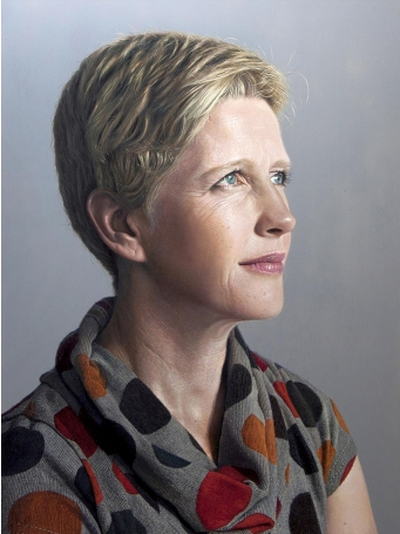
Below: The Four of Us, Leslie Watts, Graphite & wax, 50 x 40 cm

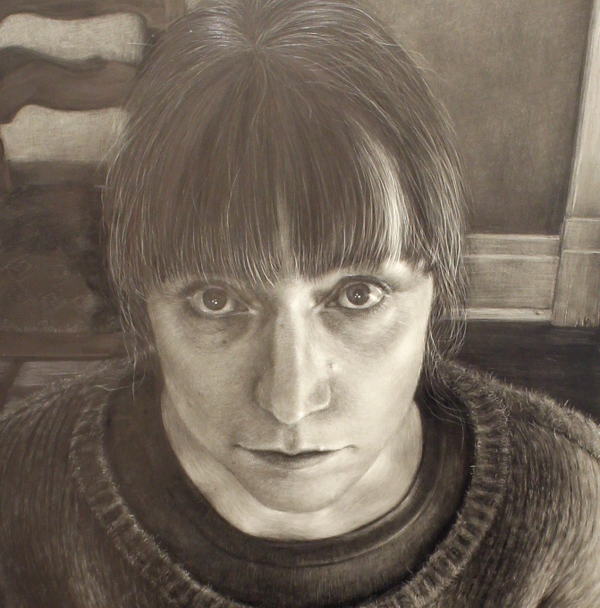
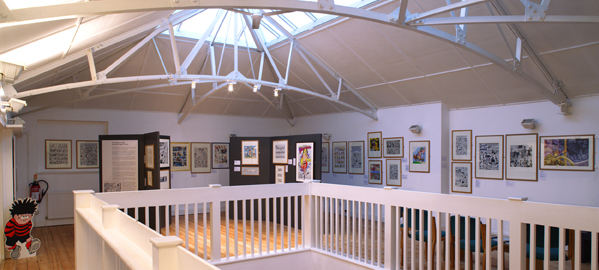
A few weekends ago, I happened to walk past the Cartoon Museum near the British Museum. I've often thought about visiting (when I remember it exists) and saw there was an exhibition on called Future Shock! 40 Years of 2000 AD. I have fond memories of 2000 AD, so this was a great opportunity to have a look at the place.
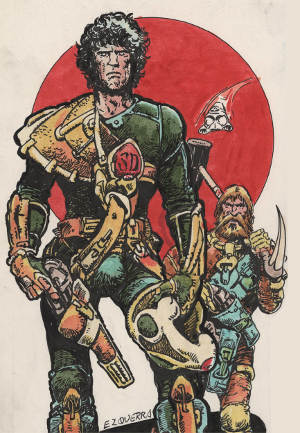
I just about remember buying the first issue of 2000 AD and was hooked. It came out in 1977: an annus mirabilis for science-fiction fans and small boys (Star Wars was released the same year). Saturday mornings stepped up a gear. There was another man in the museum with his children and I mentioned buying the first issue to him, and he said he had as well (they had issue number 3 on display I think).
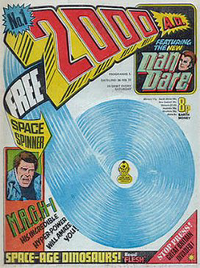
With 2000 AD costing 8p, I also remember the shock I had getting to the counter at the big London comic book shop Dark They Were and Golden Eyed (in a much seedier St. Anne's Court) and realising I couldn't afford the comics I wanted (at all of 35p each, if I recall). The difference here was they were US imports. My grandad didn't have an extra couple of pounds on him either, if I recall, and no plastic cards in the wallet either. Those were the days, and Soho's changed a lot since then as well (never mind inflation).
For Star Wars, I remember the special trip (twice) to London's Leicester Square to see the film and being awe-struck with it, from the thunderous first shot through the big cinema sound system. Science-fiction and comics are so mainstream now but back then it was all very new. 1977 was the birth year of a massive new media industry of films, comics, TV and technology. Back then there was no internet, and only three TV channels; now we have wall to wall media saturation. In some ways, not altogether better for it.
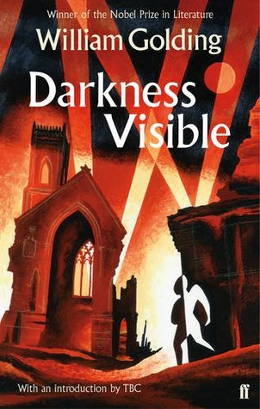
Darkness Visible
By William Golding
Score: 2/5
From Milton's Paradise Lost:
No light; but rather darkness visible
Served only to discover sights of woe,
Regions of sorrow, doleful shades, where peace
And rest can never dwell, hope never comes
That comes to all, but torture without end
Still urges, and a fiery deluge, fed
With ever-burning sulphur unconsumed.
Golding's novel is a tale of good and evil, morality and immorality. The nameless young boy who survives the Blitz though horribly burned down one side of his face and body is given the name "Matty", and we follow his odd progress through life. There's something strange with him: he sees "ghosts" and has memorised the bible. He does not know "what he is". The second strange character is Sophy, one half of a set of twins. Her sister Toni grows up, runs away and seems to be some sort of terrorist. There also seems to be something wrong with Sophy. Not only does she see a "Sophy-thing" inside her head, she can play act an innocence and take advantage of a keen intelligence, and a female body. Matty and Sophy are unsettling protagonists and it makes for uncomfortable reading being in their heads sometimes.
I had quite a bit of trouble with Darkness Visible, sometimes losing the sense of the narrative and re-reading a section to try and pick it up. I often couldn't, especially the strange inner landscapes of Matty's or Sophy's head. The last Golding book I read was Lord of the Flies, a long time ago for a school exam and I felt I needed crib book with notes again. This might explain some of my difficulty here; or maybe I'm a bit denser than I used to be. However, the book had a power that kept me reading to the end even though I knew that I probably would not understand it.
Nobel Prize winning authors are definitely trickier to read sometimes.



